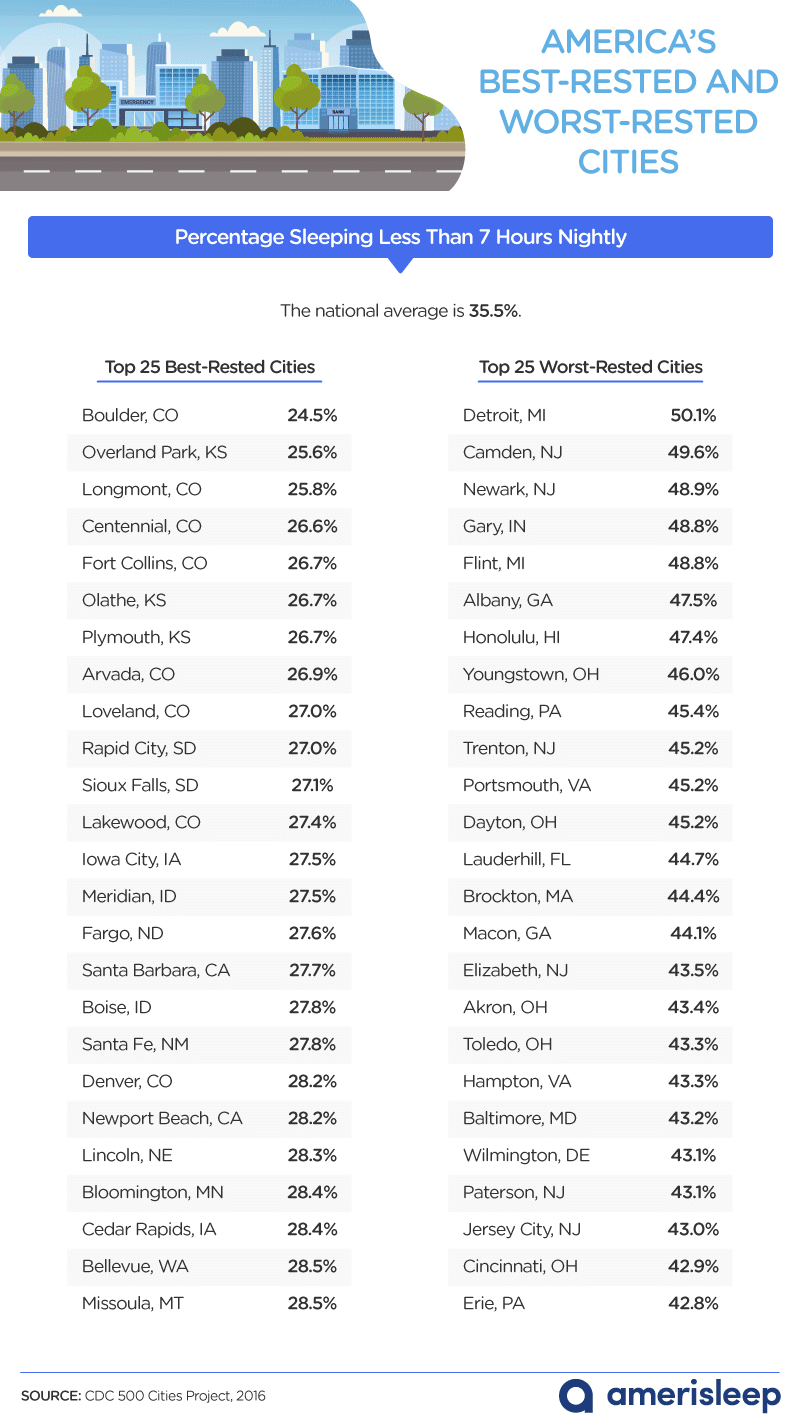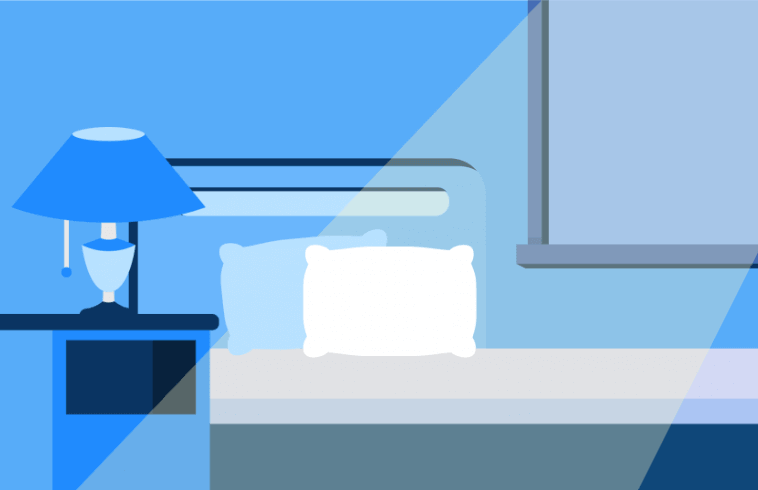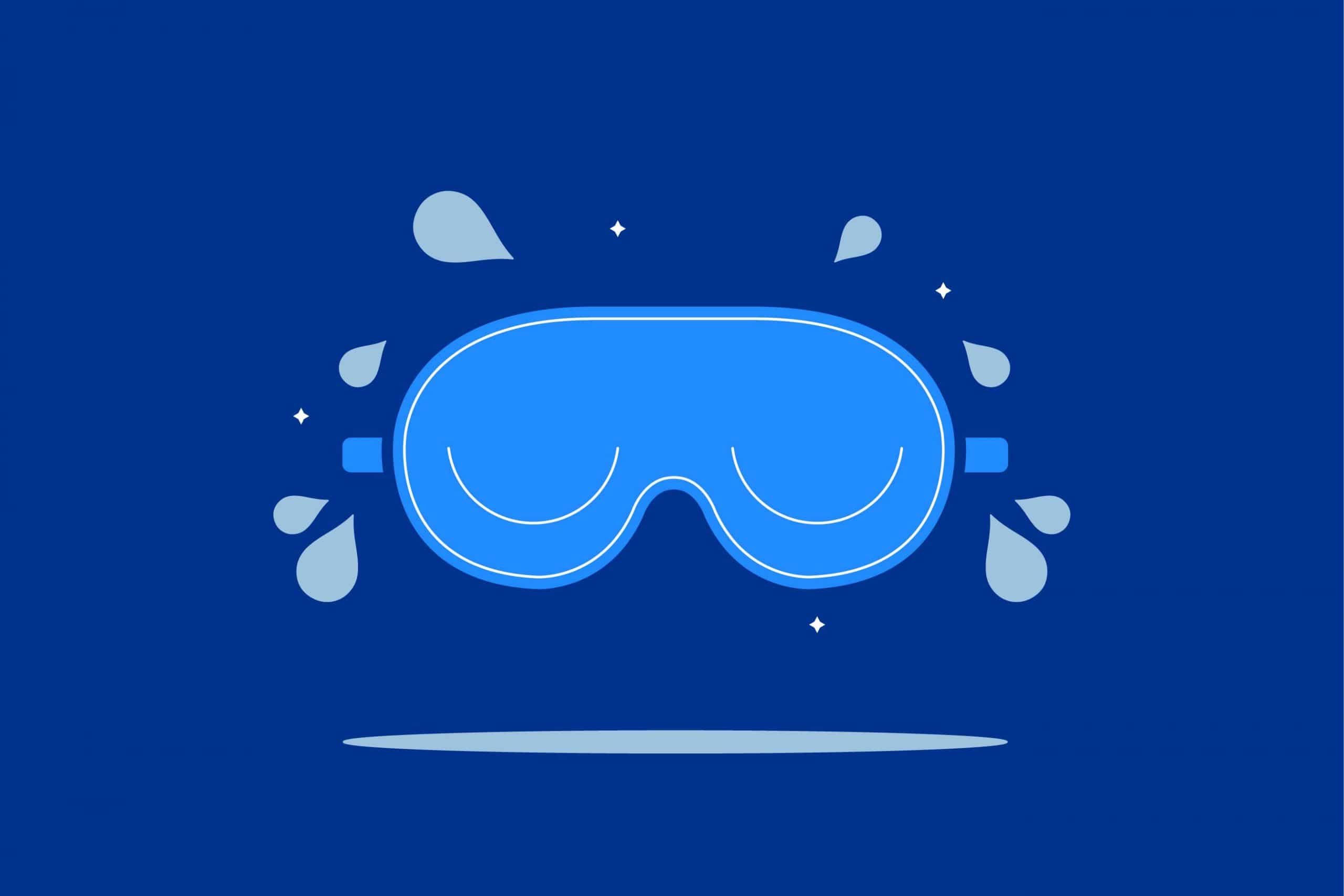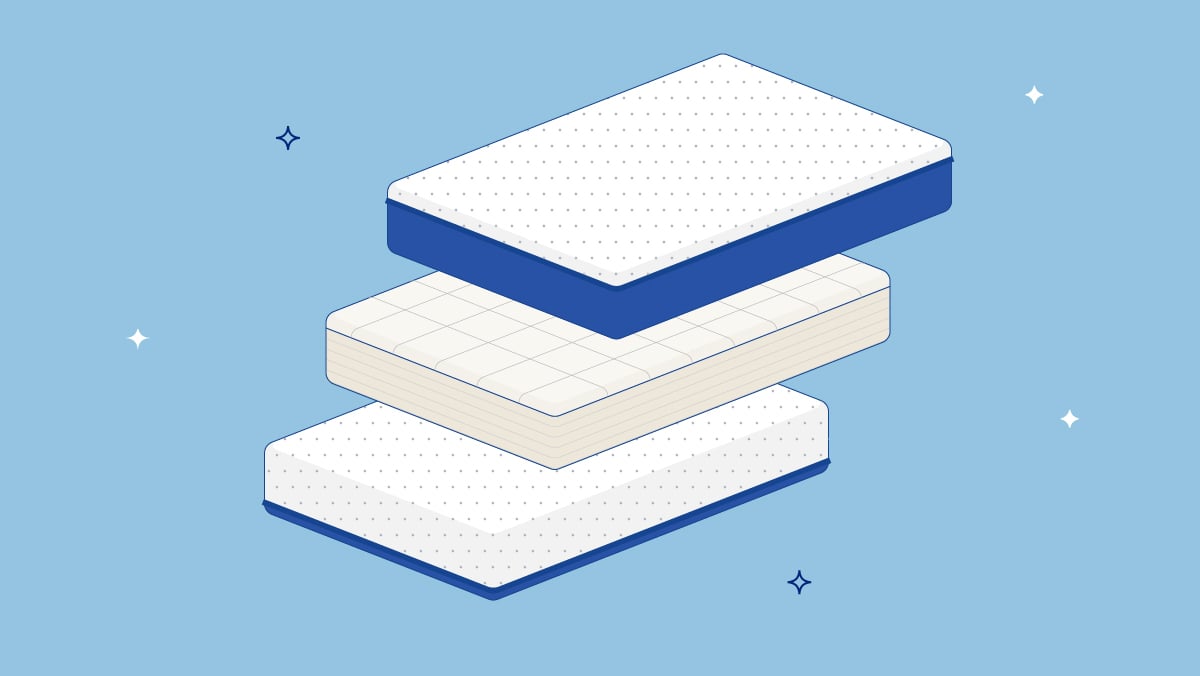
Key Takeaways
- Where You Are and What You Earn Impacts Sleep: Location and socioeconomic factors such as income, poverty rates, and population density can significantly impact sleep patterns and quality in different cities and regions.
- Greater Incomes for Better Sleep: Cities with higher median incomes tend to have better-rested populations, while areas with higher poverty rates often have more residents experiencing poor sleep.
- Health and Medical Access Tied to Sleep: Access to health insurance and overall physical health are closely linked to sleep, with cities reporting higher percentages of individuals lacking health insurance often having poorer sleep and physical health.
Using the CDC’s 500 Cities Project and U.S. Census Bureau data, we reviewed and compared multiple factors, uncovering some intriguing findings. Does it surprise you to learn that the population density of your city might impact your sleep? How about your city’s level of poverty, household income, and even whether you have access to health insurance?
To obtain a feel for how location and socioeconomic factors affect the amount and quality of sleep people receive, we first looked at the 500 largest cities in America and then the 25 best and worst rested cities. One of the first things we noticed was that the 25 most well-rested cities had a higher median income than the 25 least well-rested cities.
Find a comfy spot and settle in as we uncover our findings. Hopefully, understanding the data will encourage you to find ways to improve the quality and quantity of your sleep, so you and your family are prepared to tackle anything life throws your way.
Sleep in the City
Why does someone in Rapid City, South Dakota, sleep better or worse than someone in Albany, Georgia? Attributing it to a high altitude or an area with lower humidity may be your first thought, but other factors play a much more significant role.
To give you a view from above, we layered three maps that highlight cities, states, and regions. The percentages shown reflect adults aged 18 and older who averaged less than the recommended minimum of seven hours of daily sleep.
Starting with an overview of regional differences, more than 30% of people residing in the Rocky Mountain region got less than seven hours of sleep. Those in the Mid-Atlantic region, which includes major cities such as New York and Philadelphia, had a much higher percentage of people who averaged less than the recommended seven-hour minimum.
Scientists have studied what is known as “short sleep duration” (SSD), meaning less than six hours of sleep in 24 hours. One particular study Verified Source National Library of Medicine (NIH) World’s largest medical library, making biomedical data and information more accessible. View source focusing on young adults in their early 20s and living in China discovered that regional differences of affluence, home environments, and levels of unemployment were critical factors in how much young adults slept.
What’s also interesting is when two communities within proximity have drastic differences in sleep duration. For example, only 27.7% of adults in Santa Barbara, California, averaged less than seven hours of daily sleep, while in Bakersfield that number jumps to 36.9%.
Similar differences were found in Asheville, North Carolina, where slightly fewer than 31% slept less than the recommended daily amount, versus 40.3% in Chattanooga, Tennessee.
The Rocky Mountain area, with its crisp cool air and sparse population stood above the other regions when it came to sleep. The region’s 30.9% poor sleep percentage stood alone, with the Southwest region a full 3 percentage points behind at second.
The Pacific Coast region that includes California, Oregon, and Washington was third at 34.7%, followed closely by the Midwest at 34.9%. The D.C. area was in the middle at 36.7%.
New England and the Southern region were close at 37.2% and 37.8%, respectively, with the Mid-Atlantic region trailing the bottom at 41.4%.
Cities With the Best and Worst Sleep
City life varies where sleep is concerned. There must be something unique in Colorado’s fresh mountain air because eight of the 25 best-rested cities were located in the Centennial State.

Capturing the top spot was Boulder, Colorado, where less than one-fourth of the adult population received less than seven hours of daily sleep. Overland Park, Kansas, a suburb of Kansas City, ranked a close second at 25.6%.
For those residing in the Rust Belt and the Upper Midwest region of Michigan, grabbing a good night’s sleep might be difficult since around half of Detroit residents slept less than seven hours.
A little later, we’ll touch on why sleep may evade more adults in certain cities, but right now, it’s useful to review a few things you can avoid that can make falling asleep more challenging.
For example, in prior studies, people who checked their social media accounts right before bed averaged 35 minutes to fall asleep, compared to only 31 minutes for those who relaxed or did nothing at all before drifting off. It’s also worth mentioning that keeping a consistent sleep schedule by going to bed and waking up around the same time helps improve the quality and quantity of sleep.
Can Population Density Impact Sleep?
When we looked at the population densities of the top and bottom 25 cities for sleep, we found some very interesting correlations. Our discovery: The cities that struggle the most with sleep were twice as crowded as the cities where people slept best.

Overall, the cities with the best sleeping areas averaged approximately 3,038 people per square mile, compared to 6,183 in the worst-rested cities.
While residents of Colorado cities tended to sleep well, adults in many areas of New Jersey fell on the opposite end of the spectrum. Three of the worst top 10 cities for sleep were located in New Jersey. They include Camden, Newark, and Trenton. Other New Jersey cities with high population densities and poor sleep were Paterson, Elizabeth, and Jersey City.
If street noise and unruly neighbors are keeping you from a good night’s sleep, then soundproofing your bedroom might help. Design changes that help with noise reduction include installing soundproof rug pads and using cotton and wool throw pillows on your furniture. Not only do they absorb noise, but also they will add flair to your sleeping space.
For a finishing touch, you could even repaint your bedroom walls using products specifically designed to absorb midrange sounds. Use these for base coats and then complete the project with the paint color of your choice for a decorative touch.
Poverty and Sleep
One trend that stands out is that the 25 worst-rested cities had some of the highest levels of poverty in America. On average, the worst-rested cities had more than twice as many people living below the poverty line as the best-rested cities.

A majority of the cities where the largest number of people slept poorly were located in the upper Midwest.
Michigan, once home to a thriving automotive industry, had two of the worst-rested cities: Flint and Detroit. Their level of poverty was about 41% and 38%, respectively.
On the other end of the spectrum was Centennial, Colorado, whose poverty rate was only 4.3%. Compared to Flint, Michigan, that’s a difference of 10 times.
When looking at the top 20 cities with the highest poverty rates, 13 of those cities were in Michigan, New Jersey, Ohio, Pennsylvania, or Indiana. The exception was Iowa City, Iowa, which had a poverty rate of 28%, almost 2 percentage points higher than the average poverty rate for the worst-rested cities. Nonetheless, Iowa City residents tended to sleep much better.
Income and Sleep
Money doesn’t solve every problem; however, it may play a role in how well we sleep in certain cities. Our analysis shows a clear correlation between higher income and better sleep.

One statistic that immediately stood out was people in the worst-rested cities earned about $30,000 less per household when compared to cities where sleep was more plentiful.
Those in the best-rested cities had a median household income of $67,882, compared to only $37,765 in the worst-rested cities. On the upper end of the spectrum was Newport Beach, California, with a median household income of $119,379, whereas a Camden, New Jersey household’s median was only $26,105.
On a related note, one researcher conducted a six-week pilot study Verified Source Harvard Health Blog run by Harvard Medical School offering in-depth guides to better health and articles on medical breakthroughs. View source in racially and ethnically diverse areas of Boston with an emphasis on helping individuals improve their quality of sleep. Through in-person and telephone counseling sessions and by implementing a four-week exercise routine, residents found their sleep patterns improved.
Interestingly, when we looked at cities with a median household income of around $52,000 such as Lincoln, Nebraska, and Brockton, Massachusetts, Midwest residents slept better than their Northeastern counterparts, which is consistent with our survey findings.
Health Insurance and Peace of Mind
Often, insurance provides peace of mind, especially when it comes to our health. In the cities where people slept the worst, almost twice as many residents lacked health insurance compared to the cities where people slept better.

In the worst-rested cities, we discovered that almost 19% of people lacked health insurance, yet just over 10% were without health coverage in the best-rested cities.
Finding yourself not getting enough sleep may also increase your chances of getting sick. Doctors at Mayo Clinic Verified Source Mayo Clinic Ranked #1 hospital by U.S. News & World Report and one of the most trusted medical institutions in the world. The staff is committed to integrated patient care, education, and research. View source often notice patients who are sleep deprived are more likely to get sick after being exposed to viruses like the common cold.
Sleep helps your body’s immune system release proteins that assist with infection and inflammation, especially when a person is under stress. Plus, your body needs sleep to fight off issues that can lead to a higher risk of obesity, diabetes, and heart-related conditions.
New Jersey residents in Camden, Paterson, Elizabeth, Trenton, and Newark once again found themselves in cities where a higher percentage of people didn’t have health insurance. However, our friends in the Colorado and Iowa cities of Fort Collins, Boulder, Centennial, Cedar Rapids, and Iowa City reside in areas where the percentage of people without health insurance was in the single-digit range.
Sleep and Physical Health
The amount of sleep you receive is directly correlated to your physical health. Our bodies tend to repair themselves the most when we’re sleeping. Plus, sleep helps maintain a healthy balance of hormones, including those that affect our hunger levels.

It should come as no surprise that the worst-rested cities also had the highest levels of people with poor physical health. Except for Honolulu, Hawaii, it was practically split down the middle between the 50 cities in our survey.
Once again, the industrial areas of the Northeast and upper Rust Belt showed a higher percentage of people struggling with physical health issues. Residents in the central Plains states, along with select cities in the Pacific Northwest and West Coast fared much better in terms of being physically healthier.
The good news is that it only takes a small investment of your time to make great strides toward improving your overall health. First, engage in daily exercise. You don’t need an expensive gym membership to strengthen your heart. Take the stairs instead of the elevator, or make it a point to find the parking spot farthest away from the front door.
It’s also important to stay hydrated, with many experts recommending adults drink at least eight glasses of water daily. Not only will you feel better, but also water helps you feel full, so you’re not as inclined to consume as many calories. And when it is time to eat, it’s always a great idea to include more vegetables on your plate.
Why Sleep Matters to Your Mental Well-Being
Many times, we place a lot of emphasis on our physical health, but it’s equally important to allocate enough time and energy to making sure we’re in top mental shape.

The quality and quantity of our sleep are so important to our mental health. Studies show people are 10 times more likely to experience clinical depression and 17 times as likely to have clinical anxiety if they aren’t sleeping enough. Sleep deprivation is a common symptom of many mental health conditions, especially anxiety and depression. That’s one reason why some people with insomnia tend to suffer more with these two conditions.
When we looked at the worst-rested cities, just over 16% of people struggled with mental health issues, compared to only about 10% in the best-rested cities. Flint, Michigan, and Reading, Pennsylvania, were the top cities with the highest percentage of mental health issues, while the folks in Plymouth, Minnesota, were mentally healthier, with only about 8% dealing with those challenges.
In addition to drowning out unwanted or unnecessary noise when you sleep, consider investing in a mattress that matches your sleep style. Whether you are looking for memory foam mattress or an innerspring mattress, today’s mattresses are specifically crafted with quality materials and superior technology, all designed to give you the best night’s rest possible.
Sleep Is Important, No Matter Your Situation or Location
You hear it time and time again, but it bears repeating: Adults need at least seven to nine hours of sleep every day.
Our survey has demonstrated that factors such as location, socioeconomic status, and health conditions play a significant role in how well and how much we sleep. Although some circumstances may be beyond your immediate control, taking a few initial steps to help you sleep better could improve your mental, emotional, and physical well-being.
Good sleep hygiene comes not just from maintaining a healthy sleep schedule, but also from taking steps to live a healthy life. Regular exercise, a balanced diet, and avoiding eating too close to bed can all help you sleep better.
A significant issue that disrupts sleep is the occurrence of back pain. The best mattress for back pain can go a long way to helping you get a better night’s sleep.
At Amerisleep, we’re sleep experts. We put together a guide that helps you identify the best mattress for your sleep style. Plus, our retail and online associates can answer most any question about how to help you catch more zzz’s and feel well-rested.
Oh, and don’t forget about all the online deals we offer not only on mattresses but also on bed bases, pillows, and bedding. Sleep healthy and sleep well.
Methodology
To produce these findings, we compiled and analyzed data from two U.S. government sources: the CDC’s 500 Cities Project and the U.S. Census Bureau. For this study, we collected, collated, and fact-checked the data manually, and no automated software or “scraper” was used.
To learn more about the 500 Cities Project, you can visit https://www.cdc.gov/500cities/about.htm Verified Source Centers for Disease Control and Prevention (CDC) The United States’ health protection agency that defends against dangers to health and safety. View source or access their data portal at https://chronicdata.cdc.gov/browse?category=500+Cities. Verified Source Centers for Disease Control and Prevention (CDC) The United States’ health protection agency that defends against dangers to health and safety. View source
U.S. Census Bureau data were accessed via the Community Facts section of their American FactFinder tool, available here: factfinder.census.gov/faces/nav/jsf/pages/community_facts.xhtml, which aggregates data from a variety of Census Bureau sources. The sources that we used for this study are the 2010 demographic profile and the 2013-2017 American Community Survey Five-Year Estimates.
These data are intended to be used for entertainment purposes only, and statistical testing has not been performed on any of these findings. In some cases, questions and phrases have been rephrased for brevity or clarity.
Fair Use Statement
We believe your readers will enjoy learning about the results of our research study of America’s sleep patterns. If you agree, feel free to share all or part of this information with them as long as it’s for non-commercial purposes. All we ask is that you link back to this page so that they can digest as much of the information as they desire.
About the author
McKenzie Hyde is a Certified Sleep Science Coach and a full-time writer specializing in sleep health and the mattress industry. With a Master of Arts degree in literature and writing from Utah State University, McKenzie combines her passion for writing with her in-depth knowledge of sleep science. Her articles cover a wide range of topics, including best sleep practices for students, the consequences of sleep deprivation, and choosing the right mattress for back pain relief. McKenzie's dedication to delivering accurate and informative content makes her a valuable contributor to the field of sleep health.
View all posts




